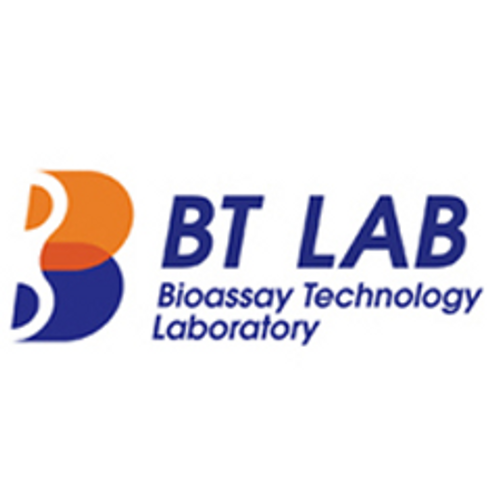Product Description
Human Monocyte Chemotactic Protein 1 (MCP-1) ELISA Kit | AE63376HU | Abebio
Species Reactivity: Human (Homo sapiens)
Abbreviation: MCP1
Alternative Name: GDCF-2; HC11; HSMCR30; MCAF; CCL2; MCP1; MGC9434; SCYA2; SMC-CF; monocyte chemoattractant protein-1|monocyte chemotactic and activating factor|monocyte secretory protein JE|small inducible cytokine
Application: ELISA
Range: 12.50-800 pg/mL
Sensitivity: 4.8 pg/mL
Intra-Assay: ≤4.5%
Inter-Assay: ≤7.2%
Recovery: 0, 82
Sample Type: Serum, Plasma, Other biological fluids
Detection Method: Sandwich
Analysis Method : Quantitive
Test Principale: This assay employs a two-site sandwich ELISA to quantitate MCP1 in samples. An antibody specific for MCP1 has been pre-coated onto a microplate. Standards and samples are pipetted into the wells and anyMCP1 present is bound by the immobilized antibody. After removing any unbound substances, a biotin-conjugated antibody specific for MCP1 is added to the wells. After washing, Streptavidin conjugated Horseradish Peroxidase (HRP) is added to the wells. Following a wash to remove any unbound avidin-enzyme reagent, a substrate solution is added to the wells and color develops in proportion to the amount of MCP1 bound in the initial step. The color development is stopped and the intensity of the color is measured.
Product Overview: CD46 complement regulatory protein also known as CD46 ( is a protein which is encoded by the CD46 gene. CD46 (MCP;MIC10) is an inhibitory complement receptor.This gene is found in a cluster on chromosome 1q32 with other genes encoding structural components of the complement system. At least fourteen different transcript variants encoding fourteen different isoforms have been found for this gene.The protein encoded by this gene is a type I membrane protein and is a regulatory part of the complement system. The encoded protein has cofactor activity for inactivation of complement components C3b and C4b by serum factor I, which protects the host cell from damage by complement. The protein encoded by this gene may be involved in the fusion of the spermatozoa with the oocyte during fertilization.
Stability: The stability of ELISA kit is determined by the loss rate of activity. The loss rate of this kit is less than 5% within the expiration date under appropriate storage condition. The loss rate was determined by accelerated thermal degradation test. Keep the kit at 37°C for 4 and 7 days, and compare O.D.values of the kit kept at 37°C with that of at recommended temperature. (referring from China Biological Products Standard, which was calculated by the Arrhenius equation. For ELISA kit, 4 days storage at 37°C can be considered as 6 months at 2 - 8°C, which means 7 days at 37°C equaling 12 months at 2 - 8°C) .
 Euro
Euro
 USD
USD
 British Pound
British Pound
 NULL
NULL








